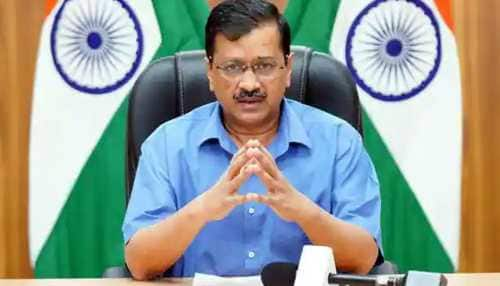- News>
- India
Dengue Outbreak In Delhi: Fine For Mosquito Breeding Increased; Beds Reserved For Dengue Patients In Hospitals

Dengue Outbreak In Delhi: CM Kejriwal has directed the Health Department to reserve beds for dengue patients and ensure adequate stock of medicines at hospitals and `mohalla` clinics.
New Delhi: Amid an alarming surge in dengue cases reported in the aftermath of recent floods in the national capital, Delhi Health Minister Saurabh Bhardwaj on Friday said that genome sequencing of 20 dengue samples was done out of which 19 samples had severe strain Type-2. Bhardwaj further informed that Delhi Chief Minister Arvind Kejriwal has directed the Health Department to reserve beds for dengue patients and ensure adequate stock of medicines at hospitals and ‘mohalla’ clinics.
Delhi Health Minister further shared that the fine for mosquito breeding has been raised to Rs 1000 for households and Rs 5000 for commercial establishments in a bid to control the spread of dengue.
Chief Minister Arvind Kejriwal earlier called a meeting at the Delhi Secretariat to review the dengue situation in Delhi. The meeting aims to devise a comprehensive strategy to combat the escalating dengue cases that have gripped the city in recent weeks. Health Minister Saurabh Bhardwaj, Mayor Shelly Oberoi, and officials from concerned departments will be in attendance to address the pressing situation.
As monsoon rains continue to batter the region, the incidence of dengue and malaria has spiked, affecting the health and well-being of several residents. Over the last two weeks, Delhi has witnessed 51 cases of dengue alone, raising serious concerns among health authorities.
The devastating floods could have exacerbated the situation by creating conducive breeding grounds for disease-carrying mosquitoes. Stagnant water and unhygienic conditions are considered the ideal environment for the mosquito population to thrive and multiply.
On July 19, the Delhi Government's Department of Drug Control released a warning stressing the rise in vector-borne illnesses in the nation's capital brought on by the rainy season. "Aspirin, Ibuprofen, and Diclofenac group of medicines may be restricted to be sold on a prescription of a Registered Medical Practitioner only," the advice stated.
Prior to this, Delhi Mayor Shelly Oberoi visited many hospitals in the capital city on July 17 and gave the sanitation department instructions to conduct a cleanliness blitz and reduce the risk of infectious diseases in flood-affected areas.
Shelly explained to the reporters that they were there to inspect the hospitals. Diseases including dengue, chikungunya, and malaria are a concern because floodwater is present everywhere. In order to reduce dengue and malaria cases, instructions have been given to the sanitation department to conduct a cleanliness blitz in flood-affected areas.
A total of 187 dengue cases have been reported in the national capital this year till July 22 - the highest for the period since 2018, according to a civic body report released on Monday.
